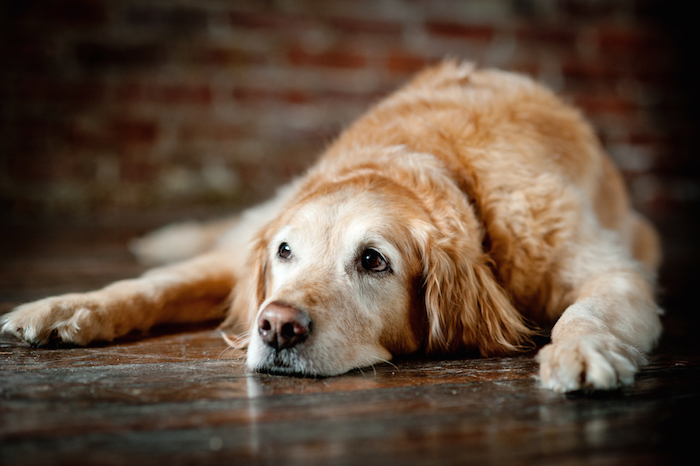Older dogs have different care requirements from that of puppies, and keeping this fact in mind is critical to the well being of your pet. It’s important to effect some changes in their everyday routine (such as diet, grooming, exercises, etc.) in order to keep them happy and healthy. Just as modern medicine as extended the lives of humans, the right combination of attention and care can help your aging dog live longer and more comfortably.
Here are some tips to help :
Adjust his diet
The type of food you feed a young dog is different from that which a senior dog requires. For example, aging dogs need food that’s easier to chew and digest as well as foods that are low in calories. Feed your pet a balanced diet containing high-quality ingredients in appropriate amounts so they can maintain a good weight. Consider speaking with your vet on the best diet since older dogs must be fed with a diet that is rich in fiber and meets all nutritional needs while allowing for weight loss.
Exercise your dog’s body and mind
Exercising your older pet will help maintain their weight and general health. Like people, aging dogs experience difficulty performing physical exercises they used to enjoy, so be reasonable in your expectations for the intensity and duration of any activity. Too much exercise can cause health issues for your dog while too little won’t support muscle development. Your dog’s brain also needs lots of exercises, and stimulating toys such as food puzzles can go a long way to help to keep their brain sharp.
See the vet often
One very important habit to develop is to take your senior dog in for a vet check-up at least twice a year. Older dogs tend to have a lot of health issues that are not apparent, but which can cause so much pain for your doggy pal if undetected for too long. Senior pets may need additional blood tests, dental care, and examinations to make sure that there are silent health abnormalities. Another benefit is that the vet can make personalized recommendations to keep your senior dog healthy and active. Remember: it is always cheaper to prevent diseases than it is to treat them!
Maintain good oral health
Brushing your dog’s teeth may seem to be unimportant, but it is critical for pets, especially older dogs. Regular brushing and professional cleaning can prevent painful dental disease and decay while maintaining your pet’s oral health. If your dog doesn’t enjoy teeth brushing, consider dental treats and toys that can keep the teeth clean.
Practice good grooming
Most pet owners know the importance of grooming their dogs regularly, but very few are aware that older dogs have special grooming needs. Your dog will need regular ear cleaning, brushing and nail clipping, to prevent fleas and ticks, eliminate discomfort, and protect their feet and joints. Consider mobile grooming for your pet as it offers lots of benefits, including comfort for your aging dog, personalized attention, and minimal stress.
Conclusion
Taking care of your older dog can be more demanding than when he was a puppy. The tips above are some of the essential ways to help keep your pet in good health. Your dog has been good to you for years – now’s the time to return the favor!

